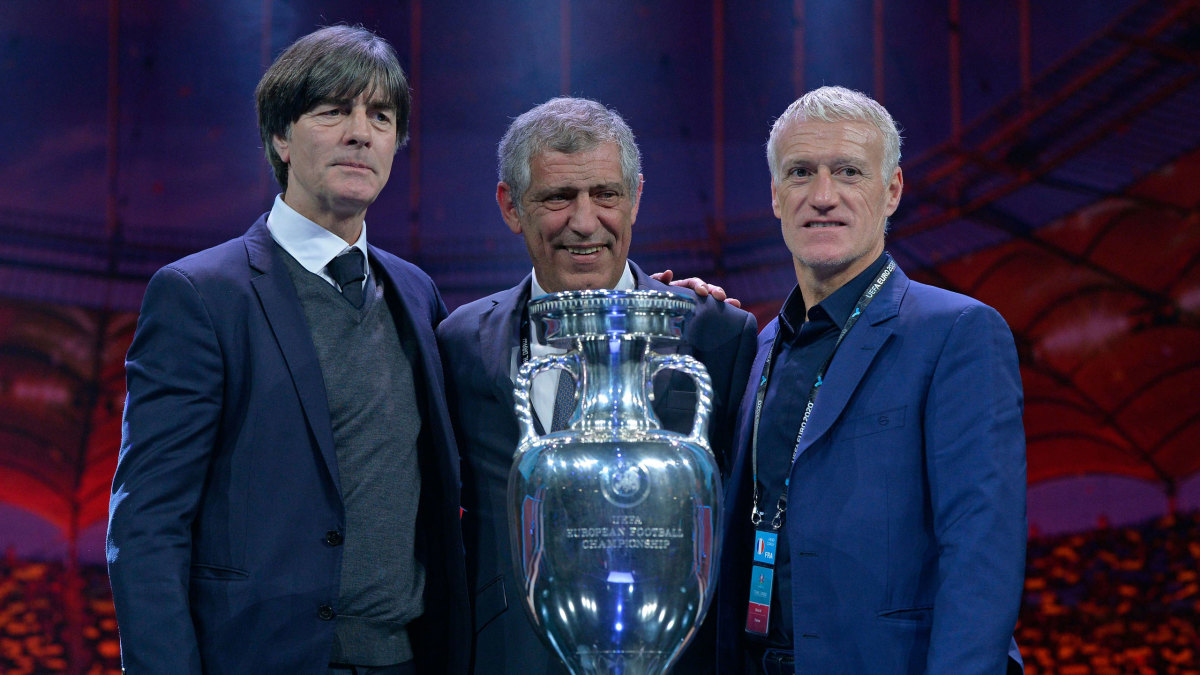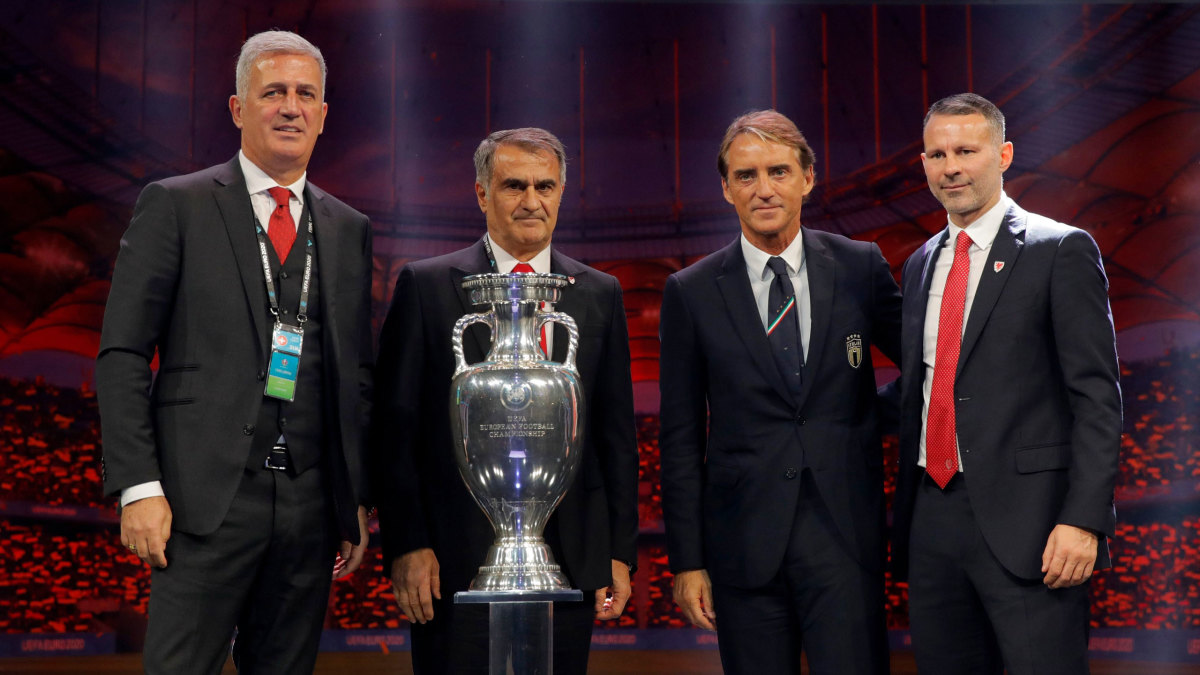A True Group of Death and Intriguing Fixtures Make Up Euro 2020


From a true-to-form Group of Death to a promising set of entertaining matches between known powerhouses and revitalized nations, there's plenty to break down as the draw for the finals of Euro 2020 was conducted in Bucharest, Romania, on Saturday.
Here are three takeaways from Saturday's draw:
GERMANY, FRANCE AND PORTUGAL DRAWN TOGETHER
Often the Group of Death is a construct, something perceived because there is a sense that there has to be one, but this time it clearly exists. Thanks to an indifferent qualifying campaigns France, the world champion, was seeded in Pot 2 and Portugal, the European champion and Uefa Nations League winner, in Pot 3.
The possibility of them being drawn together had been widely trailed as the worst outcome for any of the seeds but not only did it come to pass, they were drawn in Group F along with one of the 12 co-hosts, Germany. The fourth team in the group will be the winner of the play-off featuring teams in Path A, unless Romania comes through ahead of Hungary, another of the hosts, Bulgaria, and Iceland in which case it will be the winner of Path D – Georgia, North Macedonia, Kosovo and Belarus.
All smiles now 😁#EURO2020 pic.twitter.com/Cyn8lzeYV3
— UEFA EURO 2024 (@EURO2024) November 30, 2019
The complexity was a feature of Uefa’s most convoluted draw yet, caused both by the pre-pairing of the 12 hosts (so games in Group F will be played in Munich and Budapest), and by the play-off system, a product of the Nations League. But even with seven possibilities for the final side in that group, the clashes between the other three are mouth-watering enough. Didier Deschamps, the France manager laughed, perhaps relishing the thought of major tournament revenge for France’s hugely controversial defeat to West Germany at the 1982 World Cup, or its tamer defeat in the semi-final four years later. Fernando Santos, the hangdog Portugal coach, barely flickered, before eventually breaking into a smile: he led his side to victory over France in the Euro final in St Denis four years ago, but Portugal also have memories of defeats to France in the semi-final of the Euros in 1984 and the World Cup in 2006.
Jogi Low, the Germany manager, meanwhile, simply looked tense, before eventually being cajoled into what appeared to be a nervous giggle. He may have led Germany to the World Cup in 2014 but he is under serious pressure after a group stage exit at the World Cup and a poor Nations League campaign.
ENGLAND FACES FAMILIAR FOES
Topping Group F will be hugely important. Whoever goes through in second will face the winner of England’s group, Group D in Dublin. England, the top scorer in qualifying in terms of goals per game (Belgium scored three more but played in two additional matches), will begin at Wembley against Croatia, the side that eliminated it from the World Cup four years ago. England beat Croatia twice in the Nations League, and also beat Croatia convincingly at the Euros in 2004, but any appearance of the Croats at Wembley will always call to mind the final qualifier for Euro 2008 when, on a night of driving rain, Slaven Bilic’s team won 3-2 to eliminate England and end Steve McClaren’s reign as manager.
England will also face the last side to beat it in a competitive game, the Czech Republic, which won 2-1 in a qualifier for this tournament in Prague. The Czechs are an improving side, although England can take heart from its 5-0 win in the qualifier at Wembley.
Buzzing for this in the summer. 3 massive games at Wembley. 🦁🦁🦁 https://t.co/4ViBmu6L1V
— Harry Kane (@HKane) November 30, 2019
The group will be made up by the winners of play-off Path C. That could be Scotland, whose only win at Wembley in the last 34 years came in a Euro 2000 qualifier in 1999, although England went through having already won 2-0 in Glasgow. The Scots, though are outsiders to progress past Israel, Norway and Serbia. A potential Croatia v Serbia clash in Glasgow adds extra spice.
IMPROVING ITALY START vs TURKEY

After a decade in the doldrums that culminated in it missing out on the last World Cup, there is a vibrancy to Roberto Mancini’s side and it won 10 out of 10 in qualifying, putting nine past Armenia. It will begin the tournament in Rome against another team of great promise that failed to make the last World Cup: Turkey. Senol Gunes, who took his national side to third at the 2002 World Cup, is back in charge, has selected a notably young team and imposed a modern, pressing approach.
Switzerland, still habitually under-rated despite reaching the final of the Nations League, and Wales, which reached the semi-final four years ago, make up an intriguing group.
Here are the groups in full:
Group A
1 Turkey
2 Italy
3 Wales
4 Switzerland
Group B
1 Denmark
2 Finland
3 Belgium
4 Russia
Group C
1 Netherlands
2 Ukraine
3 Austria
4 Playoff D
Group D
1 England
2 Croatia
3 Playoff C
4 Czech Republic
Group E
1 Spain
2 Sweden
3 Poland
4 Playoff B
Group F
1 Playoff A
2 Portugal
3 France
4 Germany
